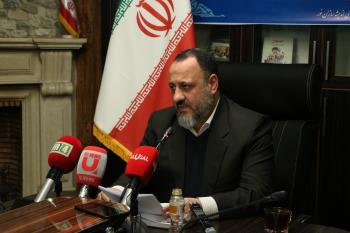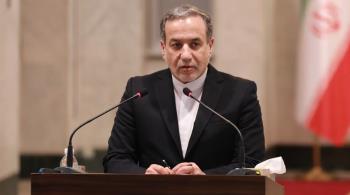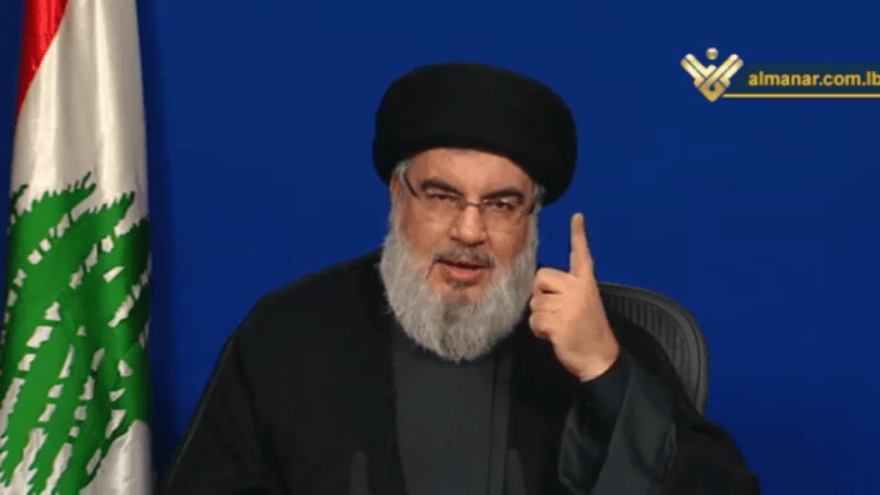Alwaght- While the Israeli officials until recently have been denying Lebanon a share in the joint Mediterranean gas field, in recent days their comments signaled that the warnings by Hezbollah movement have left their impact. Israeli Energy Minister Karine Elharrar said that Tel Aviv delayed production at Karish gas field "for technical reasons."
In its statement, the Israeli ministry of energy claimed that what Israel wants to do in the next few days is nothing more than testing the pumping system. Referring to the regime's commitments to the local and international markets, this statement expressed hope that gas production from this field will start as soon as possible.
Prime Minister Yair Lapid, who like other officials, was shocked by the threat of Hezbollah Secretary-General Seyed Hassan Nasrallah, claimed that the production of gas from this field has nothing to do with the agreement with Lebanon and starts whenever it is possible. Lapid wants to cover up his government's retreat from by saying that delineating maritime borders and producing gas from Karish field are two separate things, and he tries to simultaneously advance both of them. But Hezbollah chief strongly opposes it and says the Israeli regime will not be allowed to use the joint gas resources until the maritime border demarcation negotiations are concluded.
The Israeli leaders argued that a technical problem caused the delay in order to save their face among the public and not allow their citizens think that fear from Hezbollah was the reason for their retreat. Having in mind that the Israeli regime is set to hold its general elections within two months, any concessions to Lebanon will grant the ruling coalition's rivals privilege in the parliamentary race. This runs counter to the policy of Lapid who tries to retain the PM post.
Apparently, the threat by Hezbollah chief was the main reason behind the recent decision. Israeli analyst Odi Siegel suggests that Lapid wants to say that he is looking for an agreement with Lebanon, but now it seems that Israel has listened to Nasrallah's threats and is now not producing gas from the field. According to Siegel, Nasrallah has been talking about Israel for weeks. The discourse we hear from Hezbollah means that Israel has surrendered, because the Israelis keep delaying gas production.
Hezbollah warnings worked
The Israeli retreat came after Hezbollah leader during an address on Arbaeen day reiterated his warning that gas production at Karish gas field was a Lebanese red line and unilateral production would trigger strikes by missiles already locked on Karish. These warnings effectively changed the Israeli decisions.
The Israelis have repeatedly admitted that Nasrallah is serious in his warnings and has proven that he will fulfill his promises. Even the Israeli citizens have said that they trust Nasrallah's words more than their leaders', and that is why the leaders of Tel Aviv do not want to escalate tensions with the Lebanese movement. They are afraid of the outcome of any conflict with the Lebanese resistance force and they know that this time the scope of the war will not only be limited within Lebanon borders and other resistance groups in Palestine and Yemen will also engage with the occupiers and the Israeli regime will be targeted from various fronts.
Israeli military officials have repeatedly warned that in the event of a full-scale war, 1,000 rockets will be fired from Lebanon towards the occupied territories every day, and they have expressed great concern about this issue. In recent months, in his speeches, Hezbollah chief has pointed to the movement's new capabilities in precision missiles and attack drones, so that they should calculate well before taking any action against the resistance forces. Nasrallah has repeatedly said that Hezbollah is serious about securing the rights of Lebanese people in Karish gas field, because according to him, these resources are the "golden opportunity" for Lebanon to get rid of economic crisis with which it has been struggling for years. On the other hand, Israel's retreat comes while on the day of Arbaeen, a team of Hezbollah divers in the coastal waters of Lebanon, south of Beirut, recited the Qur'an and said prayers underwater for several hours, a symbolic action that showed the resistance forces' readiness to defend their maritime resources wherever the needs arise.
Making concessions in sea border talks
Though the Israelis with the US support sought to lengthen the border lines with Lebanon and ultimately render the Lebanese tired and conclude the negotiations in their favor, their frustrated remarks signal their surrender to Lebanon's demands. In remarks way different from before, Lapid said that Sea border agreement with Lebanon is necessary and useful and serves regional stability. Also, the Israeli chief of general staff Avi Kochavi traveled to Paris to discuss the agreement with the French officials. Kan news network of Israel reported that Kochavi's Paris visit comes for discussion of a border deal as France has special sway over Lebanon. Also, Total oil company is responsible for gas exploration in the Lebanese gas fields. The former Israeli military intelligence chief admitted that Tel Aviv made concessions to Beirut to steer clear of tensions and avid Lebanon's transformation into another Gaza for the Israeli regime.
As it can be seen from the statements of the Lebanese and Israeli authorities, the negotiations on delineating the maritime boundaries have reached good results in recent days and the agreements in this field will probably be finalized soon. Also, the President of Lebanon, Michel Aoun, described as "positive" the talks with the American mediator and said that they are in the final stages and guarantee Lebanon's right to explore oil and gas in the fields on Lebanese Special Economic Zone.
Israeli media confirmed that the Israelis made concessions. Haatetz newspaper reported that the US mediator Amos Hochstein made a new proposal about contested Line 23. The Line 23 is actually the sea borderline between Lebanon and Israel. Haatetz suggested that the proposal is closer to the Lebanese, than Israeli, demands. By making such proposal, Tel Aviv seeks to secure more defense room in the face of potential threats in the region. Haaretz claimed that Israel is ready to make concessions in this case because the Israelis believe that this plan can lead to the establishment of maritime relations between the two sides in the future. Despite this, Tel Aviv has insisted on placing Karish gas field inside the maritime zone under its control, and the recent American proposals have included this plan. Tel Aviv has also proposed to make concessions to Lebanon regarding the determination of the borders of the "Qana" gas field.
Approach change on Karish field comes while in the past months, the Israelis unilaterally produced gas in it and were optimistic about meeting part of European needs. However, it backed down after Hezbollah threats and sought American mediation, resuming the talks after a long hiatus.
The US and the Israeli regime, citing some maritime calculations, claimed that all the gas resources shared with Lebanon in the Mediterranean Sea belong to Israel, but the maps drawn by the UN maps consider divide the resources between the two sides. Given the desperate European need for gas as the winter comes, Europe is setting its eyes on the Israeli resources that come from Karish. For this reason, the Israelis and the Americans are trying to get at least half of these resources for themselves by making concessions to Lebanon, and they are satisfied with the minimum, because they will not get anything in case of any escalation between Tel Aviv and Hezbollah.
The Israeli leaders' back-down from their stances regarding the joint gas field with Lebanon proved to all how influential Hezbollah's threats on the Israeli policy, and from now on, the Israeli leaders would put into consideration Nasrallah's stances in their dealing with the Axis of Resistance and Lebanon and hesitate before taking any miscalculated actions. They know that in case of a miscalculation, the Resistance camp would strike the occupied territories from all fronts and lead to Israeli fast collapse.



























